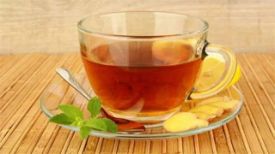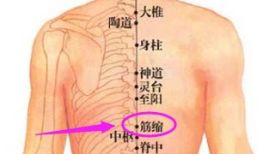The reason for this is not only that coldness can damage the yang qi, but more importantly, the spleen and stomach, which belong to the inner part, are most deficient and cold in summer.
In summer, there is a deficiency cold inside
Remember to "keep it warm"
Traditional Chinese medicine says "spring is born and summer is long". Both "sheng" and "chang" refer to qi and blood, which means that in spring, qi and blood first sprout and begin to grow outward. In summer, the growth reaches its peak. This is what the Yellow Emperor's Inner Canon says, "In summer, one can release their qi and keep their love outside." The qi and blood of summer are like the branches, leaves, and flowers of plants, flourishing outside.
Corresponding to the external qi and blood is the deficiency cold inside. In summer, the degree of deficiency cold in the spleen and stomach is the highest in a year, because there is a fixed amount of qi and blood in the whole body, and this dissipation leads to another growth. In summer, we rarely catch a cold because we have enough qi and blood to protect the outside. Even a cold often accompanies vomiting and diarrhea, which is called a "gastrointestinal cold" in Western medicine. However, the weak link lies in the spleen and stomach inside.
So, traditional Chinese medicine emphasizes health preservation in summer by eating carrots in winter and ginger in summer, or advocating drinking hot tea and drinks in summer, with the aim of avoiding the cold and harmful effects of ingredients or temperature on the spleen and stomach, which are already deficient and cold.
Hot tea, hot drinks, hot Congee
Expose deficiency cold in the body
In summer, after drinking hot tea, many people not only have a warm stomach but also sweat profusely. Some people here may worry that drinking tea and sweating profusely can damage the heart qi, because traditional Chinese medicine has the saying "sweat is the liquid of the heart.".
In fact, eating warm food instead of sweating due to overwork in summer not only does not harm the heart, but also forces out the cold in the body, because when sweating, two conditions are met: one is the temperature of the food, and the other is the nature of the food.
Generally speaking, the temperature of hot tea and hot drinks is relatively temporary. To maintain the internal warmth for a longer time, it depends on the warm nature of medicine and food, as well as food that enters the spleen and stomach meridians.
Firstly, warm and warm medicinal foods can completely improve the deficiency cold environment inside; Secondly, the spleen is the "source of qi, blood, body fluids, and biochemistry" in the human body. With a strong temperament, the food consumed can be better converted into nutrients and energy to dispel internal coldness.
Regarding the issue of sweating, I often receive inquiries from people who say they rarely sweat, even in the summer. I don't know why?
I often tell them that this is mostly due to spleen and stomach deficiency cold. In addition to internal deficiency cold and inability to penetrate the surface, the already weak spleen is also unable to turn water and grains into sweat. So, how can we regulate spleen and stomach deficiency cold?
This requires food to be eaten every day, such as rice porridge, Mantou, noodles, etc., because food can strengthen the spleen, help temper and generate sweat. The evaluation of food in the Yellow Emperor's Inner Canon places grain first, which means "five grains for nourishment".
If you want to dispel cold by sweating when you have a cold in your daily life, cold medicine must be accompanied by hot Congee or noodle soup. So after "Guizhi Decoction" and other surface relieving prescriptions in Treatise on Febrile Diseases, Zhang Zhongjing specially ordered "sipping hot porridge".

Remember these two points
Diabetics can also enjoy CongeeWhen it comes to Congee, many diabetes patients will be afraid that rice porridge will raise blood sugar too fast, so they dare not drink it. But the body needs a certain amount of sugar to supplement energy when it has a cold, so as to have enough healthy qi to expel evil spirits.
In this sense, patients with diabetes should not regard Congee as the enemy, but learn to use it skillfully and eat reasonably. Specifically, if diabetes patients drink more Congee at this meal, they need to reduce their staple food at the next meal. In short, the energy intake throughout the day should be balanced.
In addition, you can add some coarse grains to rice porridge, such as black rice, rye, quinoa, millet, poria cocos, etc. Because coarse grains are rich in cellulose, they do not transform qi and blood and raise blood sugar as quickly as white rice, so they do not have a great impact on sugar control. Drinking some while hot can help the body replenish qi and expel evil spirits as soon as possible, which also conforms to Zhang Zhongjing's original intention of drinking Congee after taking medicine.


